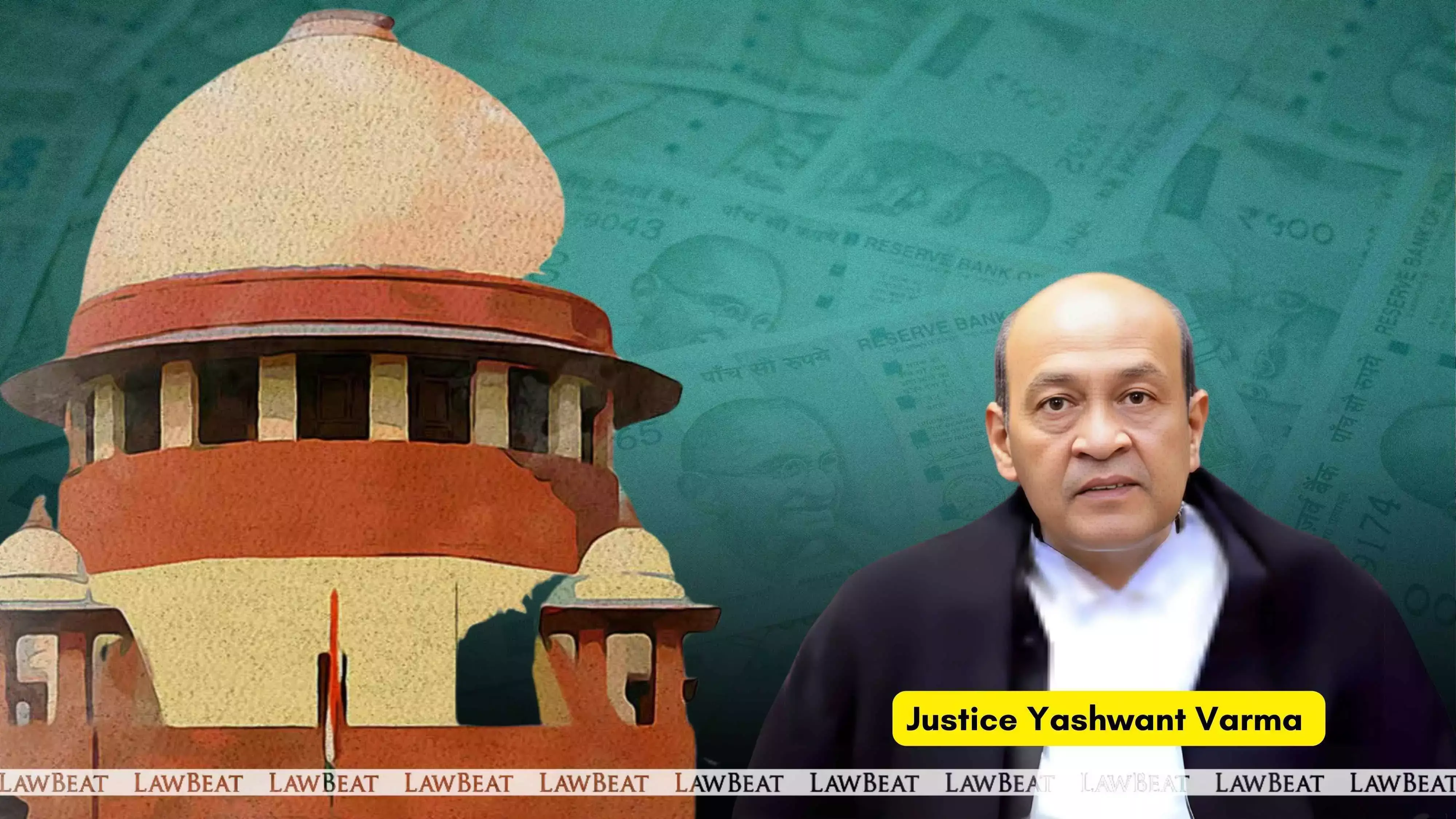Justice Varma Cash Row: Lawyers Move SC in Review, Say Criminal Law Still Not Set in Motion

Supreme Court dismissed Justice Yashwant Varma’s plea challenging the Lok Sabha Speaker’s decision to admit a removal motion and constitute an inquiry committee under the Judges (Inquiry) Act, 1968
Three lawyers along with a Chartered Account has moved the Supreme Court seeking review of its August 7 judgment dismissing their plea for registration of an FIR against Justice Yashwant Varma of the Delhi High Court in connection with the recovery of burnt currency notes from his residence.
The review petition, filed under Article 137 of the Constitution, through Advocate Mathews J. Nedumpara contends that the Court committed “errors apparent on the face of record” by dismissing their writ petition on technical grounds without addressing the merits.
According to the petitioners, the accidental fire at Justice Varma’s residence had exposed “grave offences” including money laundering, bribery, and corruption, facts that came to light only when the Delhi Police and the Commissioner of Police inspected the site and reported the matter to the then Chief Justice of the Delhi High Court.
They argue that despite having knowledge of a cognisable offence, the police refrained from registering an FIR solely because of the 1991 Constitution Bench ruling in K. Veeraswami v. Union of India, which requires prior sanction of the Chief Justice of India before lodging an FIR against a sitting judge. The petitioners contend that once the High Court Chief Justice was informed of the alleged crime, he ought to have directed the police to register an FIR. Instead, the Chief Justice published images and videos of the burnt cash on the High Court website and constituted a committee of inquiry.
The plea further states that impeachment proceedings against Justice Varma cannot substitute criminal accountability, as such proceedings are civil in nature and would only lead to his removal from office, leaving him entitled to pension and retiral benefits if he resigns before conclusion. “Bribe givers, bribe takers, fixers and brokers all remain unscathed as the criminal law has not been set in motion,” the petitioners contend.
The review application also disputes the Court’s finding that the petitioners failed to annex their representation to the Union government and Delhi Police, pointing to Annexure P-5 in their writ petition. On this basis, they submit that the dismissal of their plea was unjust and resulted in “manifest injustice,” warranting reconsideration.
Interestingly, in a significant escalation of the Justice Yashwant Varma “cash-at-home” scandal, Lok Sabha Speaker Om Birla on August 12 announced the formation of a three-member inquiry committee under the Judges (Inquiry) Act, 1968, to examine allegations of judicial misconduct against the Allahabad High Court judge. The panel will be chaired by Justice Arvind Kumar, a sitting judge of the Supreme Court, with Chief Justice M. M. Shrivastava of the Madras High Court and Vasudeva Acharya, eminent jurist and Senior Advocate of the Karnataka High Court, as members. This announcement marks the formal initiation of the constitutional process for the possible removal of a High Court judge. It comes after an in-house inquiry committee of the Supreme Court recommended Justice Varma’s removal, citing his “active control” over the premises where large quantities of cash were discovered in March 2025.
The Speaker had stated he had received a notice of motion dated July 21, 2025, signed by a total of 146 members from both the ruling and opposition parties, including Shri Ravi Shankar Prasad and the Leader of the Opposition. The motion seeks to submit a representation to the President of India for the removal of Justice Yashwant Varma, a sitting judge of the Allahabad High Court, from office under Section 3 of the Judges (Inquiry) Act, 1968, read with Article 124(4) of the Constitution, as well as Articles 217 and 218.
Notably, on July 30, the Apex Court had reserved its verdict on Justice Yashwant Varma’s plea. During the same hearing, the Apex Court also reserved its order in a separate plea filed by Advocate Mathews J. Nedumpara, who sought the registration of an FIR against Justice Varma. Justice Datta questioned Nedumpara on whether he had even approached the police before moving the Supreme Court.
The Supreme Court had earlier declined to order an FIR, asking petitioners to await the committee’s findings. Even after the report was allegedly submitted, reportedly indicting Justice Varma, no FIR was registered, prompting the current petition.
The previous petitioners were also advised to approach the President and Prime Minister. While representations were made, the plea states there has been no response or directive to investigate, despite the gravity of the incident.
In May, the Central Public Information Officer, Supreme Court of India had refused to provide information in an RTI application seeking copy of the inhouse inquiry report against Justice Yashwant Varma. The RTI also sought copy of the letter sent by then CJI Sanjiv Khanna to the Prime Minister and President of India.
Case Title: Mathews J. Nedumpara & Ors. v. Supreme Court of India & Ors.
Filing date: August 19, 2025
Bench: Supreme Court of India (hearing expected)
